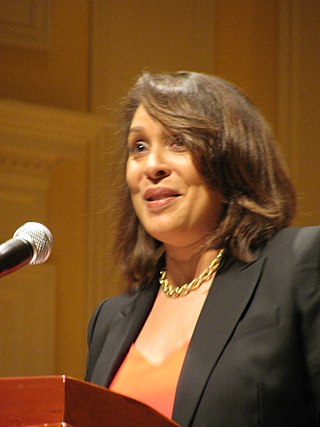Marilyn Hacker is an American poet, translator and critic. She is Professor of English emerita at the City College of New York.
Tess Gallagher is an American poet, essayist, and short story writer. Among her many honors were a fellowship from the Guggenheim Foundation, National Endowment for the Arts award, Maxine Cushing Gray Foundation Award.
Lynda Hull was an American poet. She had published two collections of poetry when she died in a car accident in 1994. A third, The Only World, was published posthumously by her husband, the poet David Wojahn, and was a finalist for the 1994 National Book Critics Circle Award. Collected Poems By Lynda Hull, was published in 2006.

Saadi Youssef was an Iraqi author, poet, journalist, publisher, and political activist. He published thirty volumes of poetry in addition to seven books of prose.

Anthony Dey Hoagland was an American poet. His poetry collection, What Narcissism Means to Me (2003), was a finalist for the National Book Critics Circle Award. His other honors included two grants from the National Endowment for the Arts, a 2000 Guggenheim Fellowship in Poetry, and a fellowship to the Provincetown Fine Arts Work Center. His poems and criticism have appeared in such publications as Poetry Magazine, Ploughshares, AGNI, Threepenny Review, The Gettysburg Review, Ninth Letter, Southern Indiana Review, American Poetry Review and Harvard Review.
Linda Alouise Gregg was an American poet.

Carl Phillips is an American writer and poet. He is a Professor of English at Washington University in St. Louis. In 2023, he was awarded a Pulitzer Prize for Poetry for his Then the War: And Selected Poems, 2007-2020.
Thomas Sayers Ellis is an American poet, photographer and bandleader. He previously taught as an associate professor at Case Western Reserve University in Cleveland, Bennington College in Vermont, and also at Sarah Lawrence College until 2012.

Natasha Trethewey is an American poet who served as United States Poet Laureate from 2012 to 2014. She won the 2007 Pulitzer Prize in Poetry for her 2006 collection Native Guard, and is a former Poet Laureate of Mississippi.

Heather McHugh is an American poet. She is notable for Dangers, To the Quick and Eyeshot. McHugh was awarded the MacArthur Fellows Program and Griffin Poetry Prize.
Dennis Nurkse is a poet from Brooklyn.
Dobby Gibson is an American poet. His first book of poetry, Polar, won the 2004 Beatrice Hawley Award and was a finalist for the 2006 Minnesota Book Award. He is also author of Skirmish (2009) It Becomes You (2013), and Little Glass Plane (2019), all published by Graywolf Press.
Douglas A. Powell is an American poet.
David Rivard is an American poet. He is the author of seven books including Wise Poison, winner the 1996 James Laughlin Award, and Standoff, winner the 2017 PEN New England Award in Poetry. He is also a Professor of English Creative Writing in the Masters of Fine Arts program at the University of New Hampshire.
Roger Greenwald is an American poet, translator, and editor based in Toronto, Ontario, Canada.
April Bernard is an American poet. She was born and raised in New England, and graduated from Harvard University. She has worked as a senior editor at Vanity Fair, Premiere, and Manhattan, inc. In the early 1990s, she taught at Amherst College. In Fall 2003, she was Sidney Harman Writer-in-Residence at Baruch College. She currently teaches at Skidmore College in Saratoga Springs, New York. Her work has appeared in The New Yorker, the Boston Review, AGNI, Ploughshares, Parnassus, and The New York Review of Books.

Mary Jo Bang is an American poet.

Mary Leader is an American poet and lawyer.
Jessica Treadway is an American short story writer.

Maria Saskia Hamilton was an American poet, editor, and professor and university administrator at Barnard College. She published five collections of poetry, the final of which, All Souls, was posthumously published in September 2023. Her academic focus was largely on the American poet Robert Lowell; she edited several collections of the writings and personal correspondence of Lowell, Elizabeth Hardwick, and Elizabeth Bishop. Additionally, she served as the director of literary programs at the Lannan Foundation, as the Vice Provost for Academic Programs and Curriculum at Barnard College, and as an editor at The Paris Review and Literary Imagination.










